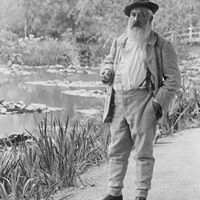Who in antiquity wrote that the natural substance of water "per se" tends to be tasteless?
Aristotle, a Greek philosopher and scientist born in 384 BC, wrote that the natural substance of water "per se" tends to be tasteless. In his view, it serves only as the vehicle for flavor. But eventually, scientists have noticed that a swig of pure (natural) water could provoke a certain taste. Some found it bitter on the tongue; others said it was insipid.
Nonetheless, natural water (pure water) is tasteless because it does not bind to any of the taste receptors in a person's tongue. The water will have only a few ions which are unable to bind with any proteins present in the taste buds. This is why the water seems tasteless. Pure water simply contains nothing that triggers the taste receptors in the tongue, and it is thus perceived as tasteless. However, there are usually solutes in non pure water that will present some kind of taste. If something does activate one of the various gustatory (taste) pathways in a person, then a taste will be perceived. If water has not been been purged of foreign substances, it will have some kind of a taste.
More Info:
www.answers.com











